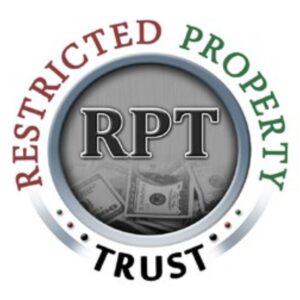Mastering Wealth Protection: The Strategic Role of Restricted Property Trusts
Mastering Wealth Protection: The Strategic Role of Restricted Property Trusts
Blog Article

In the world that of financial management safeguarding assets from risk and uncertainties is crucial. Restricted Property Trust represent a cutting-edge solution for innovative wealth preservation. With their strategic approach to asset protection, RPTs provide significant benefits for individuals seeking to secure your financial stability.
What Are Restricted Property Trusts?
Restricted Property Trusts are sophisticated financial tools that are designed to safeguard and manage important assets while imposing restrictions on their use and transfer. Unlike traditional trusts, RPTs are governed by conditions that limit the ways assets can be used or distributed. These restrictions help to shield assets from possible legal liabilities, creditors and other financial risks.
Strategic Benefits of Restricted Property Trusts
1. Advanced Asset Protection: One of the most compelling advantages of RPTs is the ability to offer advanced protection for assets. By putting assets in an RPT, investors can safeguard their wealth from creditors, lawsuits and other financial risks. This additional layer of protection assures that assets of value are secure, even under difficult circumstances.
2. Tax Efficiency: RPTs provide significant tax advantages, which makes them an attractive option for wealth preservation. Contributions to the trust may be tax-deductible, and the trust itself can enjoy favorable tax treatment for income earned from the trust's assets. This can result in substantial tax savings, optimizing your overall strategy for financial planning.
3. Effective Estate Planning: RPTs play a crucial role in effective estate planning. They permit individuals to transfer assets to beneficiaries and maintain control over the timeframe and the conditions of the transfer. This could simplify the estate planning process and reduce estate taxes and avoid the complexities of probate.
4. Customizable Asset Management: Despite the limitations, RPTs provide the greatest flexibility in asset management. Trustees can be given specific guidelines on how to manage and distribute the assets, making sure they align with the individual's financial goals as well as legacy plans.
Implementing a Restricted Property Trust
Setting up an RPT requires meticulous planning and consultation with an advisor in the field of finance or an estate lawyer. They can assist you in drafting the trust that best meets your needs and objectives. The trust document will outline the restrictions and conditions related to the assets and will also outline the obligations and roles of trustees.
Regular reviews and periodic updates could be necessary to ensure that the RPT is in line with your financial goals and is able to adapt to any changes in your personal situation.
Conclusion
Restricted Property Trust offer an innovative method of preserving wealth that offers sophisticated asset protection as well as strategic advantages. Through the use of the unique features that RPTs offer, you are able to secure your assets, benefit from tax advantages and streamline the process of planning your estate. A consultation with a skilled expert is vital to customize the trust to meet your requirements to ensure you have a sound plan to ensure your financial security over the long term. Take advantage of the advantages of RPTs to transform your wealth protection, and protect you financial stability. Report this page